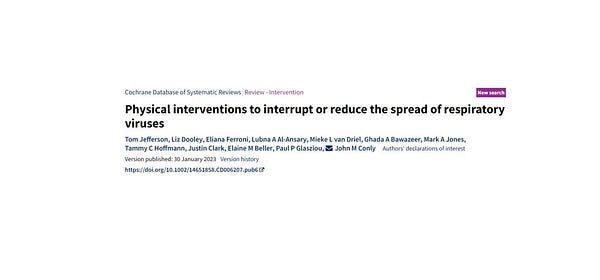Inside Medicine Week In Review (February 11, 2023).
Quick catch up, solid reading recs, and my appreciation to you!
It’s the Inside Medicine “Week In Review”! This is meant to be a convenient way to find what we've covered this week (in case you missed anything or never got around to reading something you’d flagged) and a chance for me to share some good stuff from other writers and outlets (“What I’m Reading”).
Here’s this week’s Inside Medicine entries. Please “like” and share them!
Sunday: Why I teach emergency medicine residents to present cases "in reverse."
Monday: Data Snapshot: The rise and fall of monoclonal antibodies for Covid-19.
Tuesday: Covid-19 killed hundreds of frontline physicians, study finds.
Wednesday: Field notes: The man who couldn't describe his own job.
Thursday: Is wastewater the answer for tracking all disease outbreaks?
Friday: Impressions of "Pegylated Interferon Lambda," a new Covid-19 treatment which performed well in a major study.
What I’m Reading. These are items written elsewhere that I found important and interesting (note: some may be paywalled or require free registration):
Should Future COVID Boosters Include the Ancestral Strain? We need a new approach to formulating and rolling out the vaccines. (Dr. John P. Moore, and Dr. Céline Gounder, MedPage Today).
Commentary: Many pundits “decided” early that the new bivalent booster is better than the monovalent one it replaced. Few writers combine immunology, infectious disease, and data analysis expertise as my friends and colleagues Dr. John Moore (Columbia University) and Dr. Céline Gounder (New York University). They make a dispassionate and compelling case that keeping aspects of the Wuhan strain of SARS-CoV-2 in the next round of boosters may not be wise.
What ending the emergency actually means. (Dr. Katelyn Jetelina and Dr. Caitlin Rivers, Your Local Epidemiologist).
Commentary: The Biden Administration announced it will end the public health emergency in May. That has implications for coverage of free tests, and also how drugs and vaccines are paid for. This piece answered a lot of my own questions, and will answer many of yours too.
Tweet of the week (Yes, I’m still on Twitter, so you don’t have to be):


A big “study of studies” on masking and hand washing came out recently published by the Cochrane Collaboration. Cochrane reviews are extremely high quality endeavors. Many were disappointed that the study did not conclude that masking works all that well. I’ll have more to say on this in the future, but for now suffice it to say that the Cochrane review does not mean that masks don’t work. In this case, the report means that the research on this topic has simply not answered the question well. We know that physical barriers work in some degree. The question is, what types, over what time period, and crucially, what is the best way to measure the magnitude of these efforts?
Thanks for liking and sharing the newsletter every day! That helps the content here gain further reach. And, as always, a special thanks to the upgraded subscribers who make such great comments. Increasingly, that’s the pulse of this newsletter, and I hope to see the community continue to grow so that the conversations can be even more robust.
Also, let me know if you have topics you’d like me to cover.
Have a great Saturday!



I second John Stiller's comment, from the point of view of an 80-year-old, in treatment for prostate cancer for the past 22 years and ongoing today. My wife and I will continue masking (N95 only) and hand washing/sanitizing - not, as our unfriendly critics claim, out of fear, but simply good sense.
It is axiomatic that wearing quality masks correctly under certain circumstances can decrease the risk of spreading infections. We don't need a Cochrane review to understand that. I will be interested in your take as I am passing on reading it!